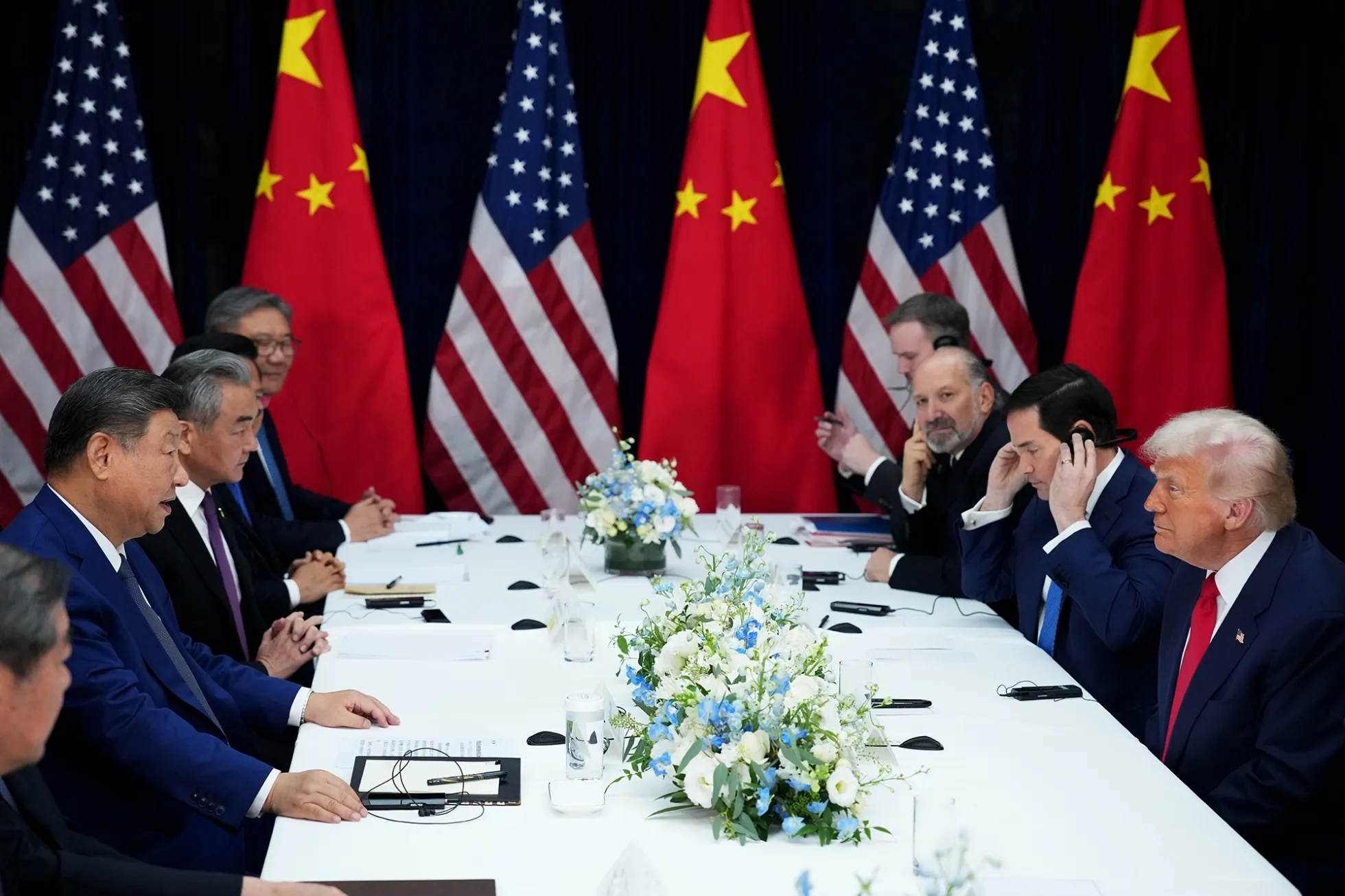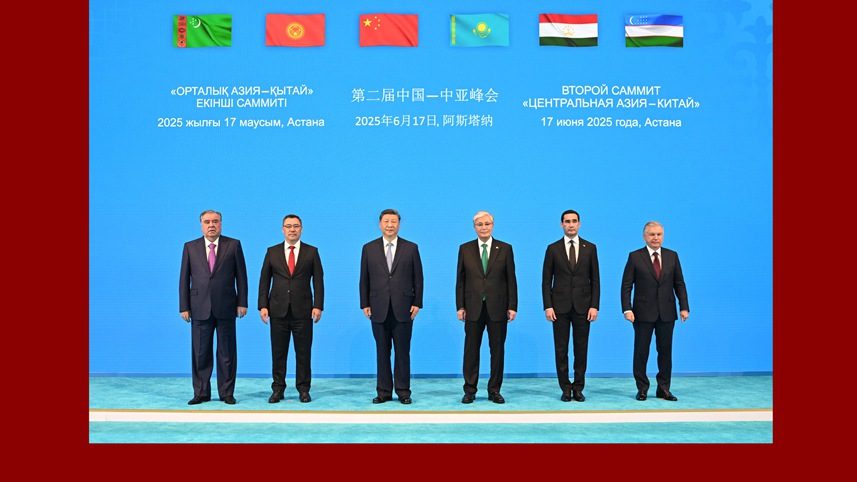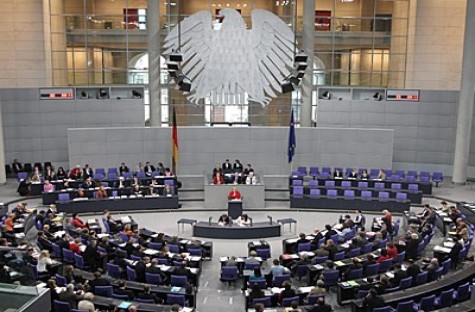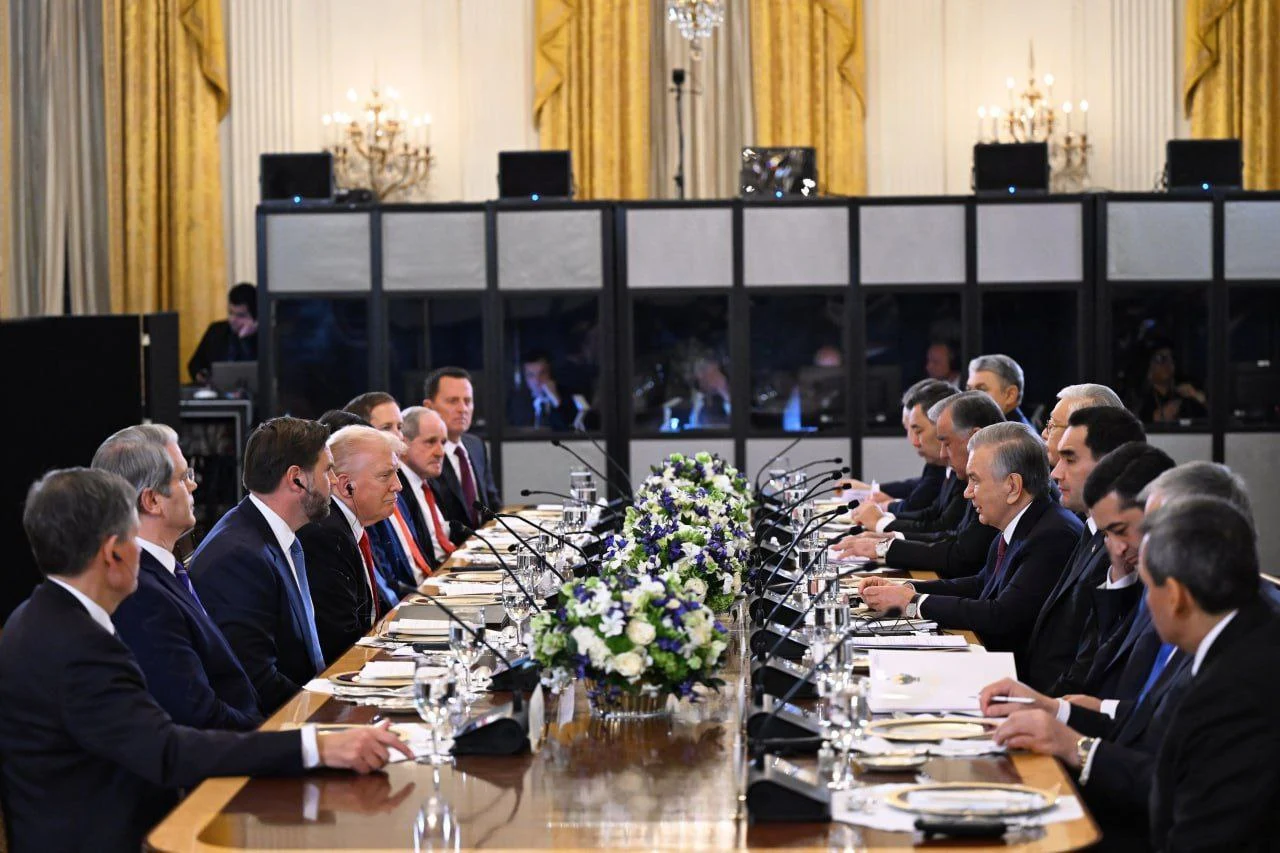
This is the English translation of a Turkish language article that was originally published by AVİM on 5 February 2025.
At the end of World War II, the Cairo Declaration was signed through which it was agreed upon that Taiwan, which had been annexed by Japan in 1895, would be returned to China. However, a civil war between nationalists and communists in China began in 1945. With the victory of the communists lead by the Communist Party in 1949, the People’s Republic of China (PRC) was established. Meanwhile, the Chinese Nationalist Party members took refuge in Taiwan as representatives of the Republic of China. Thus, the Taiwan Question began in terms of the territorial, political and diplomatic representation of the Chinese people. Beijing administration, viewed the problem as an internal matter from the beginning and did not accept the intervention of any country. While the PRC adopted the policy of “liberation of Taiwan by force of arms” in the 1950s, a softer policy of “one main title, four items” was adopted in 1960. In the Deng Xiaoping era, with the impact of the “Reform and Opening-up” policy, the “one country, two system” policy was adopted and it was planned to give the island of Taiwan political and economic autonomy through the peaceful unification of the island with mainland China. However, since the occupation of Japan, Taiwan has developed notable differences from mainland China on many issues such as political administration, Taiwanese identity discussions, and especially the difference in economic development.[1]
Due to the Cold War conditions, until the 1970s, the Western bloc countries, especially the United States, recognized the Taiwan administration under the name of the Republic of China instead of the PRC. Additionally, the Republic of China joined the UN as a representative of the Chinese people. Many factors such as the Sino-Soviet split, the Vietnam War and the impact of the Vietnam War on US domestic politics, post-colonial movements and the Non-Aligned Movement have all been instrumental in changing the attitude of the US and the Western Bloc towards the PRC. The most important obstacle to the US policy towards the PRC is the fact that the PRC did not give a guarantee that it would not use force against Taiwan. On the other hand, the US wanted to maintain economic and political relations with Taiwan, especially in arm sales. Eventually, in 1971 the Beijing administration was recognized by the UN as the sole representative of the Chinese people. The US, on the other hand, was able to maintain relations with Taiwan by passing the Taiwan Relations Act in 1979.[2]
Until this period, the most important issue of the Beijing administration was to be recognized and to overcome its diplomatic isolation in light of its One-China principle. With regards to Türkiye, which started its relations with the PRC in 1971, the most important issue in the period in question was the aggravation of the Cyprus Question. When the policies followed by the PRC, which became a member of the UN Security Council in 1971, towards Cyprus was are examined, it can be clearly seen that the PRC did not participate in the voting from 1971 to 1981, and even though the PRC participated in the voting after 1981, it adopted the same attitude as the other permanent members.[3] It is argued that the PRC was trying to strengthen cooperation with the EU, the US and Russia through multilateral organizations such as the UN, since the PRC did not have a traditional influence in the region.[4] The Greek Cypriot Administration of Southern Cyprus (GCASC) established relations with the Beijing administration in 1971 and has been one of the most important supporters of the PRC’s primary policies, especially the “One China” principle. The Minister of Defense of the GCASC visited the PRC for the first time in 2001. While supporting the PRC on Taiwan and the One China policy, the GCASC criticized the arms embargo of the EU on the PRC. Similarly, the PRC supported the GCASC in the Cyprus Question.[5] Türkiye did not make a policy to exert political and economic influence against the PRC regarding the Cyprus Question during this period.[6] Türkiye’s close contacts with the PRC would last until the 1990s.
Three main factors played a role in the PRC's approach to the Cyprus Question: the priority of making economic and political gains, security perception, and geopolitical considerations. The first is related to the PRC’s permanent membership to the UN and increasing diplomatic and political influence during this period, the integration of the PRC in the neoliberal system with its membership in the World Trade Organization in 2001, and thus the increasing importance of economic and trade policies. The second reason is related to the Taiwan Question and its security aspects. While the PRC accepts the current situation regarding Taiwan as the status quo, it perceives any initiative that will change the current situation on other issues, such as the Cyprus Question, as a revisionist attempt. Moreover, the PRC is concerned that this would set an example for Taiwan. In this context, the PRC supported the GCASC’s claims in accordance with UN resolutions. The third reason is related to the geopolitical importance of the Eastern Mediterranean and the island of Cyprus. Since 2007, the discovery of energy sources in the Eastern Mediterranean and the power struggle in the region have influenced the PRC’s role in the region. Additionally, the use of Cyprus during the evacuation of the PRC citizens from Lebanon proved that Cyprus is of strategic importance in terms of the PRC’s Middle East policy.[7]
During the attempted implementation of the UN’s Annan Plan, the PRC declared that it would act in congruence with the international community. Commenting on the results of the voting that took place in the island of Cyprus on the Annan Plan, the PRC’s UN permanent representative stated that the Plan did not produce the desired outcome.[8] The GCASC becoming a member of the EU in 2004 is the motivating economic reason for the PRC to improve its relations with the GCASC. The relations have thus gradually developed under this consideration. The EU membership of the GCASC and the legislation implemented by the GCASC have made it easier for the PRC to develop its trade with the EU. The GCASC has taken various steps such as a “golden visa” scheme to attract PRC’s investments.[9] In 2019, the GCASC joined the Belt and Road Initiative and in 2021 relations have progressed to the level of “strategic partnership”.[10] The PRC companies have investments, especially in the fields of digital infrastructure and green transformation (such as solar panels). The Vasilikos LNG terminal project is one of such investments.
As detailed in the article titled “Beijing on the Cyprus Problem: One China, One Cyprus?” published in China Med Project, the PRC’s official “one China policy” discourse towards Taiwan has recently been equated with the “One Cyprus” discourse.[11] The “One China, One Cyprus” discourse has been used by high level representatives such as Liu Yantao (who has been the PRC’s ambassador to the GCASC since 2020), GCASC’s former ambassador to China and its currently the GCASC’s Prime Minister, and has been adopted by the GCASC press as well. [12] This discourse is problematic from a legal, political, identity, religious, and cultural point of view, as it views the Taiwan and Cyprus Questions as identical issues. Ambassador Liu views the discourse of “One China, One Cyprus” in the context of the “Global Security Initiative” proposed by Chinese President Xi Jinping in 2022. The “Global Security Initiative”, together with the “Global Development Initiative” announced in 2021 and the “Global Civilization Initiative” announced in 2023, explains the PRC’s approach developed towards the international system in the context of the vision of “Community of Common Destiny”. The “Global Security Initiative” promotes a proactive approach and practical actions to address international issues.[13] This situation shows that the PRC wants to play a more leading role in international issues and conflicts. Ambassador Liu, is approaching the Cyprus Question in this regard. However, the Cyprus Question has quite different attributes in comparison to the Beijing Declaration, Iran-Saudi Arabia mediation, and Myanmar examples evaluated within the scope of the Global Security Initiative. On the other hand, it is stated that Liu’s discourse is not repeated often as before and the discourse has not received significant interest in Beijing.[14] It is claimed that the rapprochement in the Türkiye-PRC relations with the high-level visits in 2024 played a role in this situation.[15]
In conclusion, the PRC’s approach towards the Cyprus Question has been mainly shaped by the desire to make economic and commercial gains. Since its establishment therefore, the PRC, which has accepted the status quo in international disputes due to its security threat perception regarding Taiwan, has approached the Cyprus Question in support of the GCASC’s claims based on economic and commercial motives.
[1] Barış Adıbelli, Stratejik Kuşatma. İstanbul: IQ Kültür ve Sanat, 2017. ; Çağdaş Üngör, Tayvan Sorunu. K. İnat, B. Duran ve M. Ataman (Ed.), “Dünya Çatışmaları: Çatışma Bölgeleri ve Konuları” (2. bs., ss. 501-515), Ankara: Nobel.
[2] Barış Adıbelli, Stratejik Kuşatma. İstanbul: IQ Kültür ve Sanat, 2018.
[3] Kadir Temiz, “An Illustration of Sino-Turkish Relations: The Cyprus Question”, Insight Turkey, 2018, 20(1), 81-98. s. 90
[4] Hayriye Kahveci-Özgür, Jiuzhoi Duan, “China’s ‘Silky Involvement’ in the Eastern Mediterranean: A Geopolitical Uupper Hand for Greece and Cyprus?”, Journal of Balkan and Near Eastern Studies, 2023, 25(1), 65-81.
[5] Kadir Temiz, “An Illustration of Sino-Turkish Relations: The Cyprus Question, Insight Turkey, 2018, 20(1), 81-98.
[6] Kadir Temiz, “An Illustration of Sino-Turkish Relations: The Cyprus Question”, Insight Turkey, 2018, 20(1), 81-98.
[7] Kadir Temiz, “An Illustration of Sino-Turkish Relations: The Cyprus Question”, Insight Turkey, 2018, 20(1), 81-98.
[8] Kadir Temiz, “An Illustration of Sino-Turkish Relations: The Cyprus Question”. Insight Turkey, 2018, 20(1), 81-98.
[9] Hayriye Kahveci-Özgür, Jiuzhoi Duan, “China’s ‘Silky Involvement’ in the Eastern Mediterranean: A Geopolitical Uupper Hand for Greece and Cyprus?”, Journal of Balkan and Near Eastern Studies, 2023, 25(1), 65-81.
[10] “Chinese Ambassador Yantao: China will Play a Constructive Role in Resolving the Cyprus Issue as Always”, 2024, 7 February, Cyprus Mirror, Accessed https://www.kibrispostasi.com/c140-DAILY_NEWS/n506542-chinese-ambassador-yantao-china-will-play-a-constructive-role-in-resolving-the-cyprus-issue-as-always
[11] Leonardo Bruni, Ahmet Faruk Işık, “Beijing on the Cyprus Problem: One China, One Cyprus?”, The China-Global South Project, 2025, 8 January, Accessed https://chinaglobalsouth.com/analysis/beijing-on-the-cyprus-problem-one-china-one-cyprus/.
[12] “Cyprus –China Relations” (n.d.), CCEIA, 2025, 5 February, Accessed https://www.unic.ac.cy/cceia/cyprus-china-relations/
[13] “Implementing the Global Security Initiative to Build a World of Lasting Peace and Universal Security”, Ministry of Foreign Affairs of the People’s Republic of China. Accesed
https://www.mfa.gov.cn/eng/wjb/zzjg_663340/swaqsws_665306/xgxw/202403/t20240328_11272725.html
[14] Leonardo Bruni, Ahmet Faruk Işık, “Beijing on the Cyprus Problem: One China, One Cyprus?”, The China-Global South Project, 2025, 8 January, Accessed https://chinaglobalsouth.com/analysis/beijing-on-the-cyprus-problem-one-china-one-cyprus/
[15] Leonardo Bruni, Ahmet Faruk Işık, “Beijing on the Cyprus Problem: One China, One Cyprus?”, The China-Global South Project, 2025, 8 January, Accessed https://chinaglobalsouth.com/analysis/beijing-on-the-cyprus-problem-one-china-one-cyprus/
© 2009-2025 Center for Eurasian Studies (AVİM) All Rights Reserved
No comments yet.
-
 HIGHLIGHTS FROM THE US PRESIDENT TRUMP’S ASIA TRIP
HIGHLIGHTS FROM THE US PRESIDENT TRUMP’S ASIA TRIP
Seyda Nur OSMANLI 29.01.2026 -
 CHINA’S INCREASING INVOLVEMENT IN CENTRAL ASIA: THE SECOND CHINA-CENTRAL ASIA SUMMIT
CHINA’S INCREASING INVOLVEMENT IN CENTRAL ASIA: THE SECOND CHINA-CENTRAL ASIA SUMMIT
Seyda Nur OSMANLI 18.08.2025 -
 TURKIYE-CHINA RELATIONS: OPPORTUNITIES AND CHALLENGES
TURKIYE-CHINA RELATIONS: OPPORTUNITIES AND CHALLENGES
Seyda Nur OSMANLI 22.11.2024 -
 THE 16TH BRICS SUMMIT REGARDING CHINA AND THE GLOBAL SOUTH
THE 16TH BRICS SUMMIT REGARDING CHINA AND THE GLOBAL SOUTH
Seyda Nur OSMANLI 26.12.2024 -
 CHINA’S TAIWAN POLICY AND APPROACH TO THE CYPRUS QUESTION
CHINA’S TAIWAN POLICY AND APPROACH TO THE CYPRUS QUESTION
Seyda Nur OSMANLI 11.04.2025
-
 GERMANY’S FAR-RIGHT TERRORISM AND THE TIMID NSU CASE VERDICT
GERMANY’S FAR-RIGHT TERRORISM AND THE TIMID NSU CASE VERDICT
Teoman Ertuğrul TULUN 25.09.2020 -
D.L. PHILLIPS’S DIPLOMATIC HISTORY OF THE TURKEY-ARMENIA PROTOCOLS 4
Ömer Engin LÜTEM 30.03.2012 -
 SHIFTING PARADIGMS: ELECTION INTERFERENCE AND DEMOCRATIC INTEGRITY IN THE OSCE REGION
SHIFTING PARADIGMS: ELECTION INTERFERENCE AND DEMOCRATIC INTEGRITY IN THE OSCE REGION
Teoman Ertuğrul TULUN 24.01.2025 -
 GERMANY OVER RECOGNITION OF THE 1915 EVENTS AS GENOCIDE
GERMANY OVER RECOGNITION OF THE 1915 EVENTS AS GENOCIDE
Cemre Dilay BOZTEPE 12.05.2015 -
 A STRATEGIC CROSSROADS IN EURASIAN GEOPOLITICS: THE EUROPEAN UNION’S CENTRAL ASIA POLICY IN THE CONTEXT OF THE C5+1 FORMAT AND TÜRKİYE’S ROLE
A STRATEGIC CROSSROADS IN EURASIAN GEOPOLITICS: THE EUROPEAN UNION’S CENTRAL ASIA POLICY IN THE CONTEXT OF THE C5+1 FORMAT AND TÜRKİYE’S ROLE
Hazel ÇAĞAN ELBİR 22.01.2026
-
25.01.2016
THE ARMENIAN QUESTION - BASIC KNOWLEDGE AND DOCUMENTATION -
12.06.2024
THE TRUTH WILL OUT -
27.03.2023
RADİKAL ERMENİ UNSURLARCA GERÇEKLEŞTİRİLEN MEZALİMLER VE VANDALİZM -
17.03.2023
PATRIOTISM PERVERTED -
23.02.2023
MEN ARE LIKE THAT -
03.02.2023
BAKÜ-TİFLİS-CEYHAN BORU HATTININ YAŞANAN TARİHİ -
16.12.2022
INTERNATIONAL SCHOLARS ON THE EVENTS OF 1915 -
07.12.2022
FAKE PHOTOS AND THE ARMENIAN PROPAGANDA -
07.12.2022
ERMENİ PROPAGANDASI VE SAHTE RESİMLER -
01.01.2022
A Letter From Japan - Strategically Mum: The Silence of the Armenians -
01.01.2022
Japonya'dan Bir Mektup - Stratejik Suskunluk: Ermenilerin Sessizliği -
03.06.2020
Anastas Mikoyan: Confessions of an Armenian Bolshevik -
08.04.2020
Sovyet Sonrası Ukrayna’da Devlet, Toplum ve Siyaset - Değişen Dinamikler, Dönüşen Kimlikler -
12.06.2018
Ermeni Sorunuyla İlgili İngiliz Belgeleri (1912-1923) - British Documents on Armenian Question (1912-1923) -
02.12.2016
Turkish-Russian Academics: A Historical Study on the Caucasus -
01.07.2016
Gürcistan'daki Müslüman Topluluklar: Azınlık Hakları, Kimlik, Siyaset -
10.03.2016
Armenian Diaspora: Diaspora, State and the Imagination of the Republic of Armenia -
24.01.2016
ERMENİ SORUNU - TEMEL BİLGİ VE BELGELER (2. BASKI)
-
AVİM Conference Hall 24.01.2023
CONFERENCE TITLED “HUNGARY’S PERSPECTIVES ON THE TURKIC WORLD"









